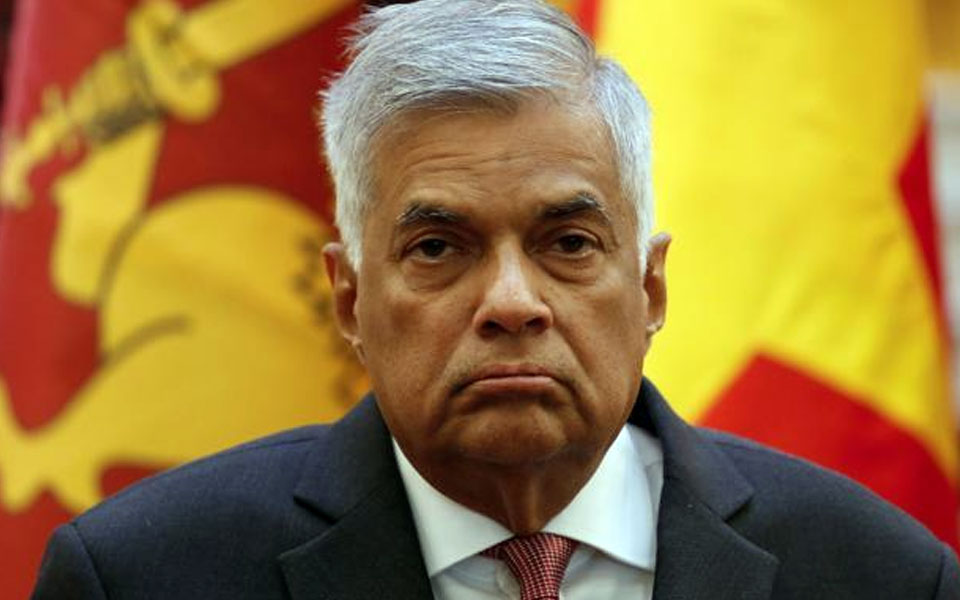Colombo: Prime Minister Ranil Wickremesinghe said that the government had known that Sri Lankan nationals who had joined the Islamic State had returned to the country, but they could not be arrested as joining a foreign terrorist organisation is not against the law.
The Islamic State group has claimed responsibility for the Easter terror attacks on three Catholic churches and three luxury hotels that claimed 253 lives but the government has blamed a local extremist group National Tawheed Jamath (NTJ) for the bombings.
We knew they went to Syria...But in our country, to go abroad and return or to take part in a foreign armed uprising is not an offence here, Wickremesinghe told Sky News.
We have no laws which enable us to take into custody people who join foreign terrorist groups. We can take those who are, who belong to terrorist groups operating in Sri Lanka," he was quoted as saying.
Facing public criticism for not acting against extremist groups in the island nation, Prime Minister Wickremesinghe said some of the suspected attackers responsible for the Easter bombings were being monitored by the country's intelligence services.
But authorities did not have "sufficient" evidence to place the suspected attackers in custody prior to the attacks, he said.
Top officials have acknowledged that Sri Lanka received intelligence about possible terror strikes ahead of the attacks, but both President Maithripala Sirisena and Prime Minister Wickremesinghe have said that they did not receive the information.
Wickremesinghe told CNN that he did not rule out the possibility of more attacks in the country. He said authorities were now focussing on "sleepers" - terrorists who could activate another round of attacks.
"Police and security forces are rounding up those involved, but they're also rounding up the sleepers, those used on second and third rounds (of attacks)," he said.
"The danger has come down drastically, (but) we do have to pick up some more sleepers, which we will do in the next few days."
Sri Lankan police have released photos of six suspects, including three women, wanted for their involvement in the attacks and sought information regarding them from the public.
Authorities earlier said nine bombers, believed to be members of local extremist group NTJ, carried out the blasts.
Let the Truth be known. If you read VB and like VB, please be a VB Supporter and Help us deliver the Truth to one and all.
Dubai: Smoke was seen rising from an area near the United States Consulate in Dubai, according to witness accounts cited by Reuters.
There was no immediate official confirmation on the extent of damage or whether there were any casualties in the incident.
Earlier, the US embassy in Riyadh, Saudi Arabia’s capital, was also attacked. Authorities reported damage to the premises, but no casualties were recorded.
The developments come amid heightened tensions in the region, with Iran continuing to target US interests in the Middle East following deadly attacks launched on Saturday by Israel and the United States.
Near US embassy in Dubai pic.twitter.com/z5VTZNVxNO
— Sahil Shah (@thesahilsshah) March 3, 2026





